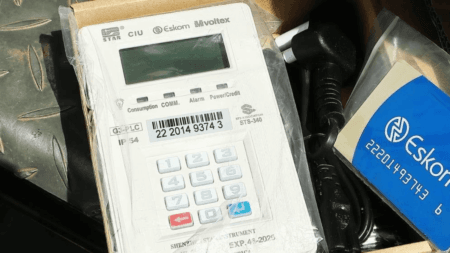Child maintenance is a vital issue for ensuring that children receive adequate financial support from both parents, especially after separation or divorce. However, in South Africa, many parents face delays in receiving the support they are entitled to through the courts. The process can be slow, complex, and frustrating, leading to unnecessary hardship for children and custodial parents.
It is crucial to explore how the child maintenance court cases can be expedited, ensuring children receive the support they need in a timely manner.
Understanding the Current Child Maintenance System
South African law places a legal obligation on both parents to support their children financially. The Maintenance Act 99 of 1998 governs child maintenance, and the courts have the authority to order maintenance payments. However, accessing this legal support often involves navigating a complex and time-consuming legal process.
When a custodial parent (usually the mother) applies for child maintenance, a formal application is made through the Maintenance Court, which is a division of the Magistrates’ Court. The process includes filing the necessary paperwork, providing evidence of the child’s needs, and attending court hearings. In many cases, delays can arise at various stages, often leading to extended waiting times for children to receive financial support.
The challenges that cause delays include:
- Backlog of cases: The maintenance courts are often overburdened, with a large number of cases to process. As a result, some cases take months or even years to be resolved.
- Non-compliance by respondents: One of the main reasons for delays is the reluctance or failure of the non-custodial parent (usually the father) to attend hearings or provide the required financial support.
- Insufficient evidence: Sometimes, the custodial parent may not have all the documentation or evidence needed to substantiate their claim, leading to adjournments and delays in processing the case.
- Lack of legal representation: Many parents, especially those from disadvantaged backgrounds, may not have access to proper legal representation. This lack of expertise can lead to delays in properly navigating the legal system.
Steps to Speed Up Child Maintenance Court Cases
While some delays are inherent in any legal process, there are several ways in which the child maintenance court system in South Africa could be sped up to ensure that children receive the support they need without unnecessary delays.
1. Streamlining Administrative Processes
One of the most effective ways to speed up the child maintenance process is to streamline the administrative procedures involved in filing and managing cases. This could involve:
- Simplified Forms and Procedures: The application forms for maintenance should be straightforward and easy to understand, reducing the likelihood of errors that might cause delays.
- Digitalization: Introducing digital platforms to allow parents to file applications online, track the progress of their cases, and communicate with the court could significantly reduce processing times. For example, integrating online submission systems and email communications would ensure more efficient handling of cases, especially in the digital age.
- Dedicated Staff: Courts could appoint dedicated administrative staff specifically trained to handle maintenance cases. This would reduce the burden on general court staff and expedite the processing of child maintenance matters.
2. Faster Court Hearings and Case Scheduling
Currently, the backlog of cases can result in delayed court hearings. To reduce this backlog, the following actions could be considered:
- Increased Court Sessions: By scheduling more frequent hearings for maintenance cases, the courts can handle a higher volume of cases. Extra court sittings could be arranged during non-peak hours or on weekends.
- Priority for Maintenance Cases: Given the urgent nature of child support, maintenance cases should be prioritized in the court schedule. This would ensure that these cases are dealt with more promptly compared to other types of civil matters.
- Alternative Dispute Resolution (ADR): Encouraging mediation and other forms of alternative dispute resolution could reduce the need for lengthy court proceedings. If both parents are willing to resolve the issue outside of court, this would speed up the process and result in faster settlements.
3. Improved Enforcement of Court Orders
One of the most significant sources of delay in child maintenance cases is the failure to enforce court orders effectively. If the non-custodial parent does not comply with the maintenance order, the custodial parent may face continued financial strain. To reduce this problem:
- Stronger Enforcement Mechanisms: The court could take more immediate and effective action when a parent fails to comply with maintenance orders. This could include garnishing wages directly from the non-custodial parent’s employer or freezing bank accounts.
- Criminal Sanctions for Non-Compliance: South African law already provides for criminal sanctions for non-payment of maintenance. However, more consistent and swift action could be taken to ensure these sanctions are implemented. The Maintenance Courts should be given the necessary resources to pursue enforcement more effectively.
- Use of Technology for Monitoring: Implementing automated systems to monitor the payment of maintenance and send reminders to non-paying parents could also be an effective way to prevent delays. This could be tied to systems that flag non-payment early, alerting the court and the custodial parent before the situation becomes critical.
4. Increasing Public Awareness and Education
Often, delays occur due to misunderstandings about the maintenance process or a lack of awareness about the rights and responsibilities of parents. Increasing public awareness can help expedite cases by ensuring both parents understand what is required of them.
- Public Education Campaigns: Launching educational campaigns about child maintenance and the steps involved in applying for maintenance would empower parents to better navigate the system and reduce unnecessary delays.
- Legal Aid and Assistance: Legal aid organizations should provide free or affordable legal advice to parents applying for maintenance. This will help ensure that custodial parents understand how to present their cases effectively, reducing the likelihood of delays caused by errors or inadequate evidence.
5. Strengthening Collaboration Between Courts and Other Agencies
Child maintenance cases often involve multiple parties, including social workers, government agencies, and employers. Strengthening the cooperation between these entities can lead to faster resolution of cases.
- Coordination with Social Services: Social workers should play a more active role in the child maintenance process by assisting with investigations and helping gather evidence for the court. Their involvement could ensure more comprehensive case files, reducing delays.
- Employer Cooperation: Employers should be required to comply promptly with court orders regarding wage garnishment, which could ensure faster collection of maintenance payments. Partnerships between courts and employers should be formalized to streamline the payment process.
Check also: How to Increase Child Maintenance to Keep Up with Rising Costs
While South Africa’s child maintenance courts play an essential role in ensuring that children are financially supported by both parents, the system faces significant challenges in terms of efficiency and timely resolution of cases. By streamlining administrative processes, prioritizing cases, improving enforcement, and increasing public awareness, it is possible to expedite the process and provide children with the support they need without unnecessary delays.
These reforms would not only benefit children but also help custodial parents receive the financial assistance they deserve, promoting a healthier, more stable environment for families.










